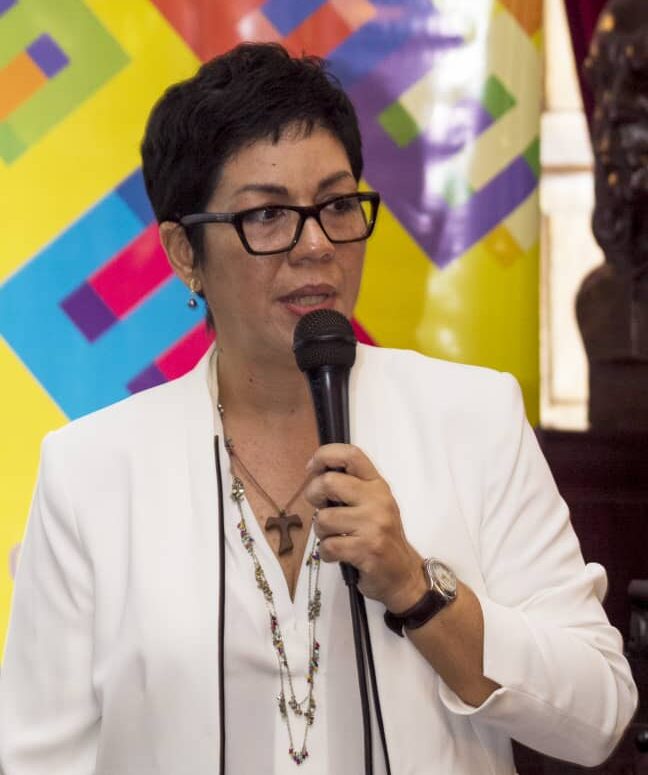The human rights organizations that subscribe to this communiqué, Acceso a la Justicia (Access to Justice) and the Venezuelan Program of Education for Human Rights Action (PROVEA), alert the Venezuelan people and the international community of the worsening human rights situation in Venezuela since the declaration of the state of alarm by the Nicolás Maduro regime on March 13. What should be a situation that unites the country to control the pandemic and preserve the health of the population, has become a political instrument of control and abuse against the population.
Before the pandemic, as evidenced by reports from international organizations (The High Commissioner and IACHR), arbitrariness and disrespect for human rights in Venezuela were systematic, in the context of the absence of democracy and complex humanitarian emergency. This situation has been further aggravated by the declaration of a state of alarm due to the Covid-19 pandemic.
A state of emergency does not imply the derogation or suppression of human rights but rather a temporal limitation, to overcome a situation, the pandemic, which requires extraordinary measures. The Inter-American Court has indicated that “the suspension of guarantees must not exceed, as the Court has emphasized, the measure of what is strictly necessary to tackle the emergency”, and that “any action by the public powers that exceed the limits specified in the provisions of the state of emergency is also illegal ”(OC 8/87). The Court has pointed out that the measures adopted would be illegitimate “if they are manifestly irrational, unnecessary, or disproportionate, or if deviation or abuse of power occurs during their adoption”. Consequently, a clear delimitation of the scope is a requirement of every state of exception, and the restrictions must be proportional to the situation to be mitigated.
In the Venezuelan case, these conditions are not met. The decree that established this type of state of emergency has serious gaps, one of them regarding productive activities subject to suspension. For example, the media was not included even though the right to information is not subject to restriction according to the Constitution. Regarding the right to freedom of movement, which may be subject to restrictions according to the decree, it does not indicate who is in charge of determining such limitations, how they will do it, nor their scope of action. This omission has created regulatory chaos in which mayors, governors, and even military authorities have issued all kinds of “decrees”, rules and regulations of all kinds, including sanctions, in violation of the principle of legality, including the imprisonment without due process and without control by any judicial authority against people who do not comply with the recommendations due to different reasons, or those who exercise their right to peaceful demonstration.
All this amid the complicit silence of the justice system, giving rise to an arbitrary number of “regulations” on social networks, obviating the principle of publishing the norms in the official communication channels, leaving citizens subject to provisions that they can only access if they have an internet connection, although this service does not reach a large part of the population.
In this way, serious limitations are established both for commercial activities and free movement, leaving citizens uncertain of the competent bodies to issue such regulations, where they can get reliable information about them, or the consequences of non-compliance according to law. The absence of clear guidelines has given rise to all kinds of irregularities on the part of unscrupulous officials, creating a breeding ground for arbitrariness and corruption.
Also, the judicial system has suspended its activities, leaving few criminal courts on duty without guaranteeing the right to effective judicial protection or considering the difficulties of transportation, not only between areas of a state but within cities. It has not provided any means to access the judicial system through electronic mechanisms, leaving the population in a serious state of helplessness.
By placing the rule of law in quarantine, the de facto government has continued the political persecution without regard to the seriousness imposed by the COVID-19 pandemic, not only against political opponents (deputies, union leaders, etc.) but also health workers, doctors, agricultural producers, journalists and even ordinary citizens who are subjected to the distortions of the norm, violating their fundamental rights. In many cases, they are accused of alleged crimes established in the null Law against Hate, an instrument that is often used against political opponents under the doctrine of the internal enemy but currently persecutes health workers and journalists who only try to do their job under these extraordinary circumstances.
By the aforementioned, we demand:
- The regulation of the state of alarm following the Constitution, including the clear definition of the restricted rights and the competent authorities to regulate and enforce the decree.
- The regulation of social distancing via a decree issued by the national executive power.
- To have everything related to the state of alarm published in the official media as soon as possible, and use social media only as an instrument of dissemination.
- The Implementation as soon as possible of effective mechanisms of economic compensation that allow the neediest people in the country to keep social distance under minimum conditions.
- The Establishment of mechanisms for fuel distribution, transparent and verifiable by the civil society, with a real prioritization of the most urgent sectors amid the pandemic.
- To Stop repressing health workers, agricultural producers, and journalists for reporting on the pandemic.
- To cease the use of political instruments of repression such as the Law against Hate, inapplicable not only because it is illegitimate but also because the pandemic should not be politicized.




